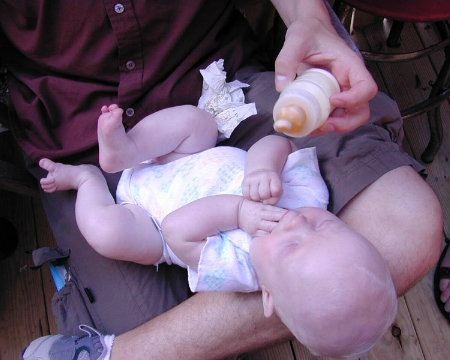New Zealand Milk Powder Ban Sparks Shortage Fears In China
China halted all importing of baby formula from New Zealand and Australia this week over concerns that the formula might be tainted with botulism-linked bacteria, and the move is likely to cause a shortage in China and cause milk powder prices to skyrocket.
There is an enormous demand for foreign-produced milk powder in China, and New Zealand supplied 90 percent of the milk powder imported to China. Last year China imported about $1.9 billion worth of milk powder from New Zealand.
Foreign brands are commonly believed to be safer and of higher quality than domestically produced baby formula, and many parents are willing to go to extremes to give their babies the best food. Demand for imported baby formula is so high that when in March Hong Kong put a two-can cap on the amount of baby formula a traveler was allowed to take out of Hong Kong, two times as many people were arrested for milk powder smuggling in two months than were arrested for drug smuggling in all of 2012.
According to Reuters, powder exported from New Zealand's Fonterra company to other countries, including China, was found to be tainted with potentially botulism-causing bacteria. Fonterra supplies some of China's biggest food manufacturers including Dumex and Coca Cola China.
"The authorities in China, in my opinion absolutely appropriately, have stopped all imports of New Zealand milk powders from Australia and New Zealand," New Zealand Trade Minister Tim Groser said.
Analysts told Reuters that there could be a potential milk powder shortage in China, and that already high formula prices would likely rise.
Fears about Chinese-produced milk powders are not likely to ease up in China, so China is likely in the meantime to try to increase milk powder imports from the U.S. and Europe.
